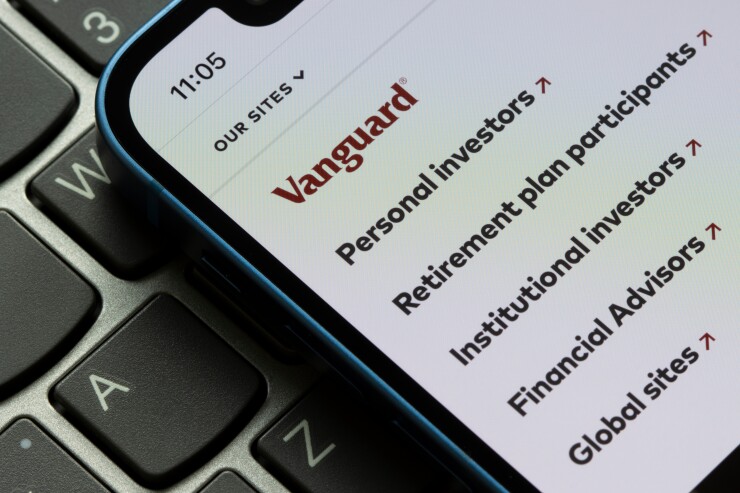As the threat of
Environmental activists from the grassroots organization Earth Quaker Action Team don't think so. Last month, around 100 Quakers, activists and customers came together to protest at Vanguard's headquarters in Valley Forge, Pennsylvania, where 16 were arrested. Vanguard is not only one of the biggest investment and assessment management firms in the world, but it is now the leading investor in fossil fuels, surpassing its competitor Black Rock this year, according to a report by the German environmental and human rights group Urgewald.
This shift comes just four months after Vanguard pulled out of the Net Zero Asset Managers (NZAM) Initiative, which encourages investment firms to reach a net-zero greenhouse gas emissions target by 2050. And while Vanguard does offer investment products that meet net-zero objectives, some customers are afraid that simply will not turn the tides in the environment's favor.
Read more:
"Vanguard has the responsibility to manage the risk that climate change presents," says Kaytee Ray-Riek, a Vanguard customer, co-clerk at the Earth Quaker Action Team and protester who had been arrested at Vanguard's headquarters last month. "Not only because it's the right thing to do for the continued existence of the planet, but it's the right thing to do for their customers. They should manage the existential risks that climate change presents to the assets they manage, like my retirement."
In fact,
However, Ray-Riek feels that Vanguard's actions are less to do with wanting to take independent action against climate change and more to do with external pressure coming from U.S. Republican officials, many of whom are financially incentivized to keep the fossil fuel industry booming.
"It seems to me Vanguard wants to maximize current profits over the long-term, but is failing to steward the retirement savings of their customers over the long term," says Ray-Riek. "They left the NZAM under pressure from the right wing, who are saying climate change is not a problem."
According to the World Health Organization, climate change is expected to cause 250,000 additional deaths per year between 2030 and 2050 due to malnutrition, malaria, diarrhea and heat stress. Just the damage to global health alone, with agriculture, water and sanitation especially impacted, is estimated to cost $2 to $4 billion a year by 2030. The consequences of climate change are already here, and bound to worsen if big economic players continue to ignore it, underlines Ray-Riek.
Vanguard declined to comment on this matter to EBN, but did share a link to its article,
Read more:
For Ray-Riek, it's clear that the stewardship program only goes so far, noting that Vanguard is actively investing in companies like Petroperú, which is taking indigenous land so it can extract fossil fuels.
"There's no reason at this point that we should be getting more coal out of the ground," she says. "We know it can require stealing from indigenous people in order to be able to access that coal. All of this speaks to why Vanguard should not be investing in these companies."
Eve Gutman, media and research coordinator at Earth Quaker Action Team, points out that
Read more:
"A pretty significant part of a company's emissions is the emissions that are financed through its employees' retirement funds," she says. "So putting an eye to how the company is facilitating fossil fuel-free retirement options is a pretty amazing way to make an impact."
Gutman also suggests employers check in with their workforce and ask what values they want to invest in, if employers want to consider varied offerings. Employers can at least take advantage of
"If companies have their investments in Vanguard, call them and say we can't keep our money here and feel good about that," says Ray-Riek. "If Vanguard continues to go down this road and ignore the realities of climate change, then [employers] should move on."






